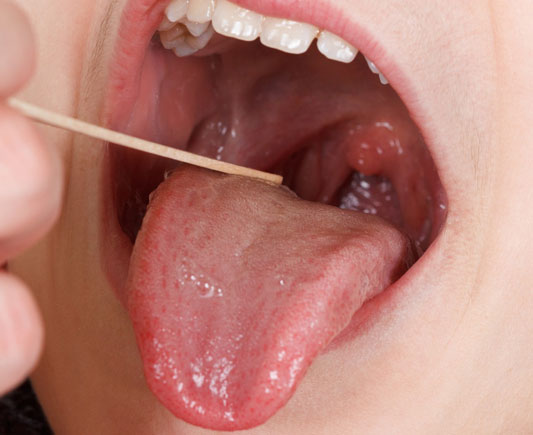Health
3 ways to prevent your dyed hair from breaking

Dyed hair requires special care and attention to maintain its vibrancy and strength.
Most especially in Nigeria, where our hair comes in various textures and is exposed to harsh weather conditions, it’s crucial to take extra measures to prevent breakage.
Here are three valuable tips that will help you keep your dyed hair healthy and lustrous:
1) Moisturize: Hydrate and nourish your hair

Just like a thirsty plant, your dyed hair craves hydration. The colouring process can strip the hair’s natural moisture, leaving it dry and brittle. To counteract this, prioritise moisturising and nourishing your hair regularly.
Start with a good-quality moisturising shampoo and conditioner designed for coloured hair. Look for products with natural oils and ingredients like shea butter, coconut oil, and argan oil. These ingredients penetrate deep into the hair shaft, providing essential moisture and protecting the colour.
Additionally, incorporate a weekly deep conditioning treatment into your hair care routine. Apply a generous amount of a deep conditioner or hair mask from root to tip, focusing on the ends.
Cover your hair with a shower cap and let the treatment sit for at least 20 minutes. Rinse thoroughly with cool water to seal the cuticles and lock in moisture. This step will replenish your hair’s hydration levels, keeping it soft, supple, and less prone to breakage.
2) Gentle handling: Be kind to your dyed hair

Dyed hair requires extra TLC when it comes to handling and styling. Rough handling can lead to hair breakage and colour fading. Here are a few tips to keep in mind:
– Use a wide-toothed comb or a detangling brush when combing wet hair. Start from the end and work up to avoid unnecessary tugging and pulling.
– Minimise the use of heat-styling tools like flat irons and curling wands. Heat can damage your dyed hair, making it more prone to breakage. If you must use heat, always apply a heat protectant spray before styling and keep the temperature low.
– Avoid tight hairstyles that pull on your hair, such as tight braids or ponytails. These styles can stress the hair follicles and lead to breakage. Opt for looser, more gentle hairstyles that allow your hair to breathe and move freely.
3) Sun protection: Shield your hair from Harmful UV rays

Nigeria’s sunny climate can be harsh on dyed hair. UV rays can fade your hair colour and weaken its structure, leading to breakage.
Protect your locks by using hair products that contain UV filters or wearing a hat or scarf when spending prolonged periods in the sun. This simple step can make a significant difference in preserving the vibrancy and strength of your dyed hair.
In the world of hair care, prevention is always better than repair. By implementing these three essential tips into your dyed hair care routine, you can proactively protect your hair from breakage and maintain its vibrant beauty.
These simple yet powerful practices will ensure that your dyed hair remains strong, lustrous, and ready to make a lasting impression.
Health
7 health benefits of eating seaweed

Seaweed, also known as kelp, nori, or marine algae, comes in a variety of shapes, sizes, and colours.
Each variety offers its distinct taste and texture. Seaweed is surprisingly versatile and can be enjoyed in a multitude of ways.
Here are 7 amazing reasons to consider adding a touch of the ocean to your plate:
1. Nutrition
Seaweed is a nutritional goldmine, brimming with essential vitamins and minerals that your body needs to thrive. It’s an excellent source of iodine, a vital mineral for healthy thyroid function. Just a small amount of seaweed can meet your daily recommended intake of iodine, helping to regulate your metabolism, energy levels, and brain function.
Seaweed is also a good source of vitamins A, C, E, and K, all essential for maintaining a healthy immune system and promoting cell growth and repair. Seaweed is also a natural source of magnesium, essential for regulating blood pressure and muscle function, as well as iron, which helps transport oxygen throughout your body.
It contains calcium, crucial for strong bones and teeth, and potassium, which helps maintain healthy blood pressure.
2. Gut health
The human gut is a complex ecosystem teeming with trillions of bacteria, both good and bad. A healthy balance of these microbes is crucial for health and digestion. Seaweed is a prebiotic, meaning it provides nourishment for the good bacteria in your gut. These friendly bacteria help with digestion, and nutrient absorption, and even play a role in immune function.
By feeding these good bacteria, seaweed helps to create a thriving gut environment that keeps you healthy. Studies have shown that a balanced gut microbiome can help reduce the risk of digestive issues like constipation and irritable bowel syndrome, as well as strengthen your immune system against harmful pathogens.
3. Weight management
If you’re looking for a natural way to manage your weight, seaweed might be your new best friend. Seaweed contains a type of fibre called alginate, which forms a gel-like substance in your stomach. This gel helps you feel fuller for longer, promoting satiety and reducing cravings. This, in turn, can lead to a decrease in overall calorie intake and support weight management efforts.
In addition to its fibre content, seaweed is naturally low in calories and fat, making it a guilt-free way to add variety and nutrients to your meals.
4. Heart health
Heart disease remains a leading cause of death worldwide. The good news is that seaweed might offer some protection for your heart. Seaweed contains healthy fats, including omega-3 fatty acids, which have been shown to promote heart health by reducing inflammation, lowering bad cholesterol levels, and improving blood pressure.
Seaweed may also help to prevent blood clots, which can block arteries and lead to heart attacks and strokes. Furthermore, its rich supply of antioxidants helps fight free radicals that can damage blood vessels and contribute to heart disease.
5. Blood sugar control
For people with diabetes, managing blood sugar levels is crucial. Seaweed might offer some unique benefits in this regard. Studies suggest that certain types of seaweed, like wakame and fucoidan, may help regulate blood sugar levels. These seaweeds may slow down the absorption of carbohydrates in the gut, preventing blood sugar spikes after meals.
Additionally, seaweed may improve insulin sensitivity, allowing your body to utilise insulin more effectively and keep blood sugar levels under control.
Health
Five benefits of drinking Okra water

Of recent, the trend of drinking okra water has gained traction backed with compelling evidence of its numerous health benefits.
In this article, we dive into the world of okra water and uncover five amazing key benefits of incorporating okra water into your daily diet, thereby unlocking the nutritional power hidden within:
Improved digestive health
Okra water is rich in soluble fiber, which aids digestion by promoting regular bowel movement and preventing constipation. It contains a gel like substance called mucilage that soothes and coats the digestive tract, reducing inflammation and easing symptoms of gastrointestinal discomfort. regular consumption of okra water can contribute to a healthier digestive system .
Weight Loss Management
Okra is low in calories and contains high fiber content, which can help make one fuller for longer . The soluble fiber in okra water helps increase feelings of fullness reducing appetite as well as unnecessary cravings. By including okra water into a balanced diet, individuals can support their weight loss goal in a sustainable manner.
Blood Sugar regulation
If you are watching your blood sugar levels or have a loved one doing so, this benefit of okra water would be really helpful as it tends to have potential benefits for blood sugar regulation. Okra contains soluble fiber, which can slow down the absorption of sugar in the digestive system, helping to stabilize blood sugar levels . By incorporating okra water into your diet, you may experience more consistent blood sugar levels and reduce the risk of complications associated with diabetes.
Heart Health Promotion
Okra is rich in nutrients like fiber, antioxidants and vitamins that contribute to a healthy heart. The fiber content in okra can help lower cholesterol levels, while the antioxidants can help reduce inflammation and protect against heart disease. However, it’s important to remember that okra water alone is not a magic solution. A balanced diet, regular exercise, and overall healthy lifestyle are key for promoting heart health.
Skin and Hair Benefits
Okra water contains vitamins and minerals, including vitamin C and biotin, which can indeed benefit both skin and hair health. Vitamin C acts as an antioxidant, helping to protect the skin from oxidative damage caused by free radicals, thereby promoting healthier skin. Biotin, also known as vitamin B7, supports the health of hair by promoting stronger, thicker strands. Incorporating okra water into your diet or using it in beauty treatments may provide a natural way to enhance the health and appearance of your skin and hair.
With this benefits of okra water stated, if you happen to be a naysayer to okra water, you should definitely think about its benefits.
Health
Symptoms, risk factors, treatment — what to know about throat cancer

On Thursday, Ogbonnaya Onu, a former minister of science and technology in the Muhammadu Buhari administration, died aged 72.
Reports suggest that Onu, who was the first civilian governor of Abia state, grappled with throat cancer before his demise.
If you came across the news, you may have wondered for a quick minute about throat cancer and maybe imagined how the symptoms would physically manifest. Perhaps you imagined a lesion or even a swollen neck.
What is throat cancer?
It refers to a type of cancer that develops in the throat, also known as the pharynx.
The human throat is a muscular tube that begins behind the nose and ends in the neck. The voice box sits below the throat and contains the vocal cords.
The two types of throat cancer are pharyngeal and laryngeal cancers, also known as cancer of the pharynx and the larynx.
What are the symptoms of throat cancer?
Symptoms of throat cancer include persistent cough, sore throat, a lump in the throat that does not heal, changes in voice, such as hoarseness or not speaking clearly, difficulty swallowing, ear pain, and sudden weight loss.
What causes throat cancer?
Throat cancer occurs when cells in the throat develop genetic mutations that cause them to grow uncontrollably. The continuous growth kills the normal cells. Then, the accumulating cells can form a tumour in the throat.
It is not clear what causes the mutation that leads to throat cancer. There are, however, factors that can increase the risk of throat cancer.
These risk factors include a family history of cancer, smoking and chewing tobacco, excessive alcohol intake, viral infections including human papillomavirus (HPV) and Epstein-Barr virus, and a diet lacking in fruits and vegetables.
How can one reduce the risk of having throat cancer?
While there are no scientifically proven ways to prevent throat cancer, there are ways to reduce its risk such as eating a diet rich in fruits and vegetables, drinking alcohol in moderation, avoiding smoking, and protecting oneself from HPV.
How is throat cancer diagnosed?
Throat cancer diagnosis involves a few steps. A physical examination will be performed in which a doctor will examine the mouth and throat.
The examination also involves a series of blood tests, while an endoscopy will be carried out.
An endoscopy is when a thin tube with a light on its end is inserted through the nose to look for abnormalities in the throat.
A chest x-ray and computerised tomography (CT) scan may also be carried out.
How is throat cancer treated?
Treatment of throat cancer will depend on the size of the tumour, whether it has spread all over the place, and the overall health of the patient.
The doctor will first need to find out what stage of cancer the individual has, that is, how far it has spread. This helps to determine the best treatment options.
Surgery may be recommended depending on the tumour size and chemotherapy may also be required.
-

 News5 days ago
News5 days agoFAAN reopens Lagos airport runway after Dana Air incident
-

 Entertainment1 week ago
Entertainment1 week agoSkiibii’s ex-lover DJ Dorcas Fapson reacts after Nickie DaBarbie accused singer of engaging in money rituals
-

 Politics1 week ago
Politics1 week ago‘You’re not following procedure’ — Drama as Ondo guber hopeful confronts Ododo over APC primary
-

 News5 days ago
News5 days agoNigeria Air: EFCC vows to arraign Sirika over alleged contract fraud
-

 Education5 days ago
Education5 days agoUNN suspends, probes lecturer attempting to sexually assault female student
-

 Crime1 week ago
Crime1 week agoPolice arrests driver for cramming 15 children inside car in Lagos
-

 News1 week ago
News1 week agoOwners to pay fine as Anambra sets to remove illegal structures
-

 Entertainment1 week ago
Entertainment1 week agoTunde Onakoya breaks world record for longest chess marathon


















